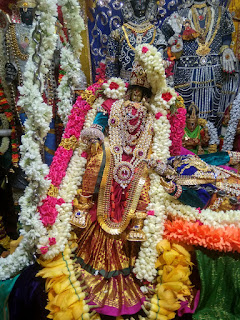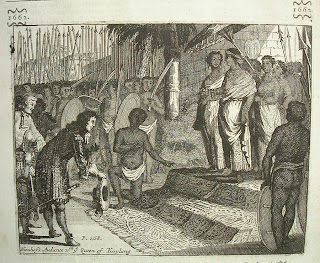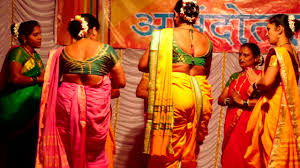Thiru Aadi Pooram-Sri Andal Jayanthi and Ambal Valaikappu
Thiru Aadi Pooram is very special for Tamilians and all Sri Vaishnava Bhagavtha Bhaktas across the globe. It is a pretty coincidence that Aadi month is very special with varied ritualistic observations- Aadi Masam, Aadi Perukku, Aadi Amavasya, Aadi Krithigai, and Aadi Velli and Sevvai. Along with this Thiru Aadi Pooram has a special reverence of significance. “Pooram is also known as Purva Phalhuni”-one of the nakshatras or the stars out of Twenty Seven stars as per Hindu almanac and astrology. Sri Andal is also known as Godha and Sri Godha devi” the only woman Alwar who stood out in her glory as one among the twelve Alwars of Sri Vaishnava Guru Paramparai was born in Aadi –Aashada month in Pooram star. Thus, it is known as Shri Andal Jayanthi. All Vaishnava temples and especially Srivilliputtur the birthplace of Sri Andal and Sri Rangam the prime temple abode of Sri Vaishnavas rejoice in galore wherein, the festival is celebrated for ten days. It is also the day of birth of Uma-Parvathi-Goddess Shakti who descended to Earth to bless her devotees.
According to Sri Vaishnava narratives, it is that Sri Vishnu Chitha also known as Periazhwar was a sincere devotee of Lord Ranganatha of Srivilliputhur. He was childless for a very long time. His prayers were answered and on Aadi Pooram day, when the devotee was collecting flowers for his puja in his garden, he found a girl child. The child was named Godhai or Kothai and grew up with devotion to Lord. Every day, Vishnu Chitha made a garland of Thulasi leaves to offer to the deity at the temple. Kothai used to wear that before offering to the Lord.
One day, the devotee happened to see her wearing this garland and so he replaced it with another one. However, the Lord refused to accept the new one and said that He would only wear the garland worn by Kothai. Vishnu Chitha realized that his daughter is Goddess Maha Lakshmi herself. Andal then came to be known as Choodi Kodutha Sudarkodi, meaning ‘garland offered after being worn’.
The 10th day is celebrated as Aadi Pooram day where Thirukalyanam –a divine marriage of the Almighty Lord Sri Ranganatha and his consort Bhu Devi as Sri Andal is conducted. Special pujas are also conducted on this day. It is believed that if unmarried girls worship Goddess Andal on the 10th day of the Aadi Pooram festival, they will get married soon.
This Stotram on Sri Andal -Godha has 29 Slokas. She offered a garland of flowers “Poo Maalai” and also her poem of bridal mysticism Thirupaavai known as “Paa Maalai”. This offering forms the theme of this Stotram and is dedicated to Sri Andal. Sri Swami Desika himself has named this Stotram as “ Sri Godha Sthuthi
!!! Shri Vishnu Chitta kula nanadan kalpavallim
Shri Rangaraja haricandana yoga drishyam
Sakshat Kshamam Karunaya Kamalamivanyam
Godha ananya sharana: sharanam prapadhye!!!
In the Shaiva temples, this day is celebrated as the Valaikappu festival for Ambal, when glass bangles are offered to Ambal & then distributed to the devotees. These bangles are said to provide offspring and generally protect us from all evils. “Valaikaappu” a bangle ceremony is a ritual celebration done to a pregnant woman by making her wear colourful glass bangles. “Valaikappu is also celebrated as Seemantam in other regions, but in Tamil Nadu, Valaikappu and Seemantham are two different ritualistic ceremonies celebrated for pregnant women. Especially they are two events of two different months celebrated in the Brahmin community. Valaikkappu is done in the fifth or sixth month of pregnancy at the maiden’s house whereas Seemantham is done in the eighth month at the husband’s house. It is believed that the bangle sound induces the child's senses and brain activity. A paste made of sandalwood and turmeric is applied to the mother-to-be's hands and face to reduce the body heat and calm the mother and baby from the fear and anxiety of childbirth. The sound of which is said to protect her and the foetus from evil forces. The Valaikappu ceremony announces the future birth of the child is and the celebration of the valaikappu gives an opportunity to recall and reinforce the union of the families of the man and the woman established by the virtue of marriage ties.
In the countryside, the ritual starts from the 16th day of marriage to the first monthly menstrual cycle commencement after the wedding ceremony. In due course, in the following months of the marriage, the young married woman in general gets disturbed discontinuance of the menstrual cycle. With a fear, anxiety-filled unable to know or ask or speak about the same. Some do share this news with a friend or a member of the family. Most often, she maintains it as a secret and is only confirmed by the local Dayi-traditionally trained midwife attendee who observers all the changes or called in when the young woman is feeling nausea or dizziness and fainting occurrence until the pregnancy has been authenticated by the conspicuousness of a rounded stomach that is visible. During pregnancy, numerous food cravings and behavioral precautions are to be observed by a pregnant to ensure a favourable outcome of childbirth.
So it is believed
that Goddess Parvathi too underwent all the stages of pregnancy like an
ordinary woman, hence the Valaikappu ceremony is done on this day at most of the
Ambal temples In Tamil Nadu. Devotees visIt Ambal temples with bangles as
offerings. Even at one’s home too bangle garland or mala or malai is offered to Ambal with sweets like Payasam
or Akkaraivadisal is cooked as the main naivedhyam to Goddess Parvathi.
Thiru Aadi Pooram 2024 celebrations in Chnennai at Shri Aramudan's residency is on. Here are pictures of first two days. Shall keep it updated. Here is teh yourube link as well https://youtu.be/hg7ljhA8m8c?si=WgOYxI3sJDo63H7w , https://youtu.be/EkZbb4kWqA4?si=Mi-ZIMb4SMAqbQZC





























Comments